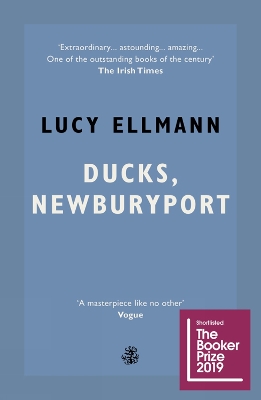Reviewed by clementine on
Reading updates
- Started reading
- 21 September, 2019: Finished reading
- 21 September, 2019: Reviewed

WINNER OF THE 2019 GOLDSMITHS PRIZE - SHORTLISTED FOR THE 2019 BOOKER PRIZE - A NEW YORKER BEST BOOK OF 2019 - A NEW YORK TIMES NOTABLE BOOK OF 2019 - A TIME MUST-READ BOOK OF 2019
"This book has its face pressed up against the pane of the present; its form mimics the way our minds move now toggling between tabs, between the needs of small children and aging parents, between news of ecological collapse and school shootings while somehow remembering to pay taxes and fold the laundry."--Parul Sehgal, New York Times
Baking a multitude of tartes tatins for local restaurants, an Ohio housewife contemplates her four kids, husband, cats and chickens. Also, America's ignoble past, and her own regrets. She is surrounded by dead lakes, fake facts, Open Carry maniacs, and oodles of online advice about survivalism, veil toss duties, and how to be more like Jane Fonda. But what do you do when you keep stepping on your son's toy tractors, your life depends on stolen land and broken treaties, and nobody helps you when you get a flat tire on the interstate, not even the Abominable Snowman? When are you allowed to start swearing?
With a torrent of consciousness and an intoxicating coziness, Ducks, Newburyport lays out a whole world for you to tramp around in, by turns frightening and funny. A heart-rending indictment of America's barbarity, and a lament for the way we are blundering into environmental disaster, this book is both heresy and a revolution in the novel.